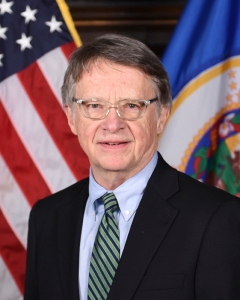Four workers from St. Louis will not be alive to observe Workers Memorial Day on April 28 this year. Their unnecessary deaths earlier in the month are a stark reminder that despite calls for cutting back government regulations, we cannot allow workplace safety standards or enforcement to be reduced.
At about 7:30 a.m., Monday, April 3, a large boiler blew up in the Loy-Lang Box factory, two miles south of downtown St. Louis resulting in the four deaths.
The force of the explosion instantly killed boiler engineer Ken Trentham and sent a cargo-van size piece of debris rocketing through the factory’s roof and into another building 500 feet away, killing Clifford Lee and newly-weds Chris Watkins and Tonya Suarez-Gonzalez. All three were filling out paperwork to start their new jobs at a medical linen company. Another injured victim remains in critical condition.
It will be weeks, possibly months, before the specific cause of the boiler’s explosion is determined. One thing is known, however, and that is unlike Minnesota and most other places in the U.S., the city of St. Louis does not require boilers to be regularly examined by either government or insurance company inspectors.
Whether a boiler inspection would have prevented the terrible deaths of the St. Louis workers won’t be known until the investigation is done. However, we do know Minnesota has a well-regarded boiler inspection program requiring inspections and licensed operators, and that it’s been at least a half century since an industrial boiler explosion killed anybody in Minnesota.
 |
| Minnesota Labor Commissioner Ken Peterson |
When enacted in 1971, the goal of the federal Occupational Safety and Health Act was to reduce the number killed or injured on the job. Since that time, national fatality rates have been reduced by more than 66 percent and injuries by 67 percent even though the U.S. workforce has more than doubled in size. In Minnesota, both occupational fatalities and injuries are near all-time lows. In 2014, our state had 3.7 injuries for each 100 workers and 2.3 deaths for each 100,000 workers.
Economic and technological changes undoubtedly are partially responsible for the decline in fatalities and injuries. Also, fewer people work in historically dangerous occupations and there is greater employer awareness of the costs of injuries.
Nevertheless, it’s clear today for working people there is a lot less pain and hurt – physically, financially and emotionally – because of enforcement of safety standards.
However, better education of both employees and employers is still needed. For example, in the past two years, three Minnesota workers have been killed by trench cave-ins. To help prevent these tragedies, Minnesota OSHA is encouraging every employer and union involved in excavations to conduct safety stand-downs this spring to remind and inform workers and management to make a plan to protect workers and prevent cave-in accidents.
Safety regulations and education don’t prevent all workplace fatalities. Each year, smaller businesses, which are harder to reach out to, account for a disproportionate number of deaths. So far in 2017, three of the five workplace deaths that Minnesota OSHA has investigated have been at firms with fewer than four employees. Unionized workplaces and those with fifty or more employees tend to have a lower percentage of accidents of all kinds.
Those injured or killed at work should be remembered. Though the injured have their bodies hurt and their lives disrupted, obviously, it’s a greater, more terrible tragedy to have a life cut short, ended too early, by a workplace accident. That’s demonstrated by the five Minnesotans killed this year, as well as the four St. Louis workers killed earlier this month.
On Workers Memorial Day, we should consider the lives of every worker who was killed on the job. Each workplace injury, illness or death is unnecessary. We all need to do what we can to make sure there are fewer in the future.
– Ken Peterson is commissioner of the Minnesota Department of Labor and Industry.

No comments:
Post a Comment